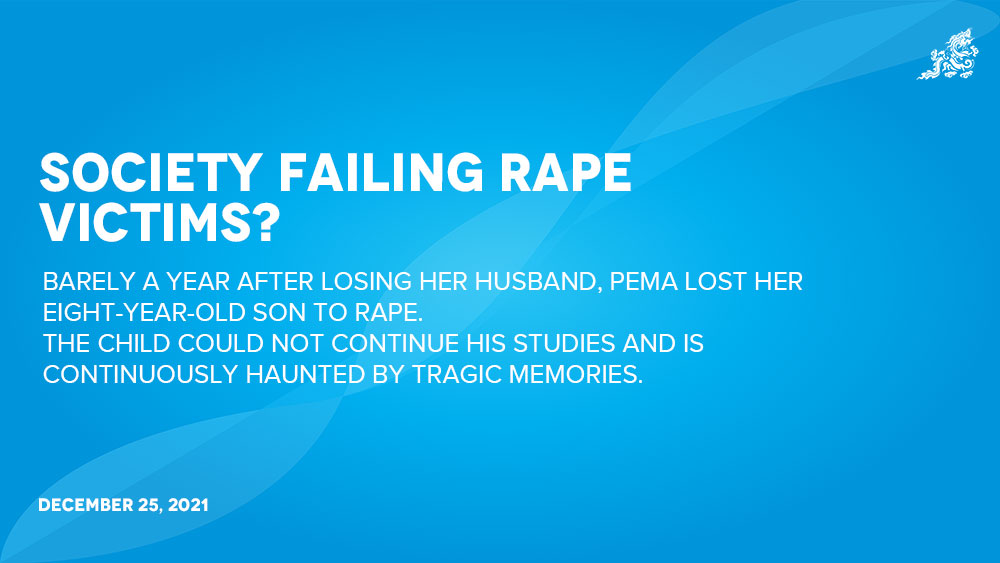Choki Wangmo | Tsirang
Barely a year after losing her husband, Pema lost her eight-year-old son to rape.
The child could not continue his studies and is continuously haunted by tragic memories.
Without a constant support system and an ailing son, Pema is depressed.
Last year, after the pandemic made life difficult, Pema moved with her son to her ancestral home in Tsirang with the hope that she could attend well to her son with the help of her parents. It did not work out as she hoped.
While returning home from his new school on the 13th day, the child encountered a stranger on the way, who pinned him down, and raped him.
Otherwise known for his punctuality, discipline and intelligence, Pema said that her son is now fighting invisible demons. She said that her son has sleepless nights, anxiety attacks, fear, and has made several suicide attempts in the last few months.
“He doesn’t want to stay in Tsirang or in the country and keeps saying that he wants to go to his father in heaven,” said Pema, who herself has been advised to take counselling to deal with the trauma.
She said that in the past, her son could go alone to places. Not anymore. He does not want to come out. The fear is keeping him inside and is growing darker by the day.
Pema’s son gets angry at the sight of male smokers. He becomes fidgety and loses his mind.
This, Pema said, could be because the rapist was a smoker.
For three months, Pema’s son attended therapy sessions at the national referral hospital. He was made to express his thoughts and mental anguish through drawings.
Pema believes that her son is only five percent recovered.
“After the incident, both of us confined ourselves to our home, but his mental condition has worsened,” Pema said.
Medical examination results have concluded that the child is suffering from post-traumatic stress disorder (PTSD) and has sleep disturbances, along with other psychopathologies.
Research has shown that PTSD typically takes the form of nightmares, flashbacks, and feelings of guilt and shame that can surface right away or years after a trauma. But it can also manifest in physical ways, like chronic pain, intestinal problems, and muscle cramps. For 94 percent of survivors, symptoms last at least two weeks; for a full half of them, they persist for years, even decades.
Besides for her parents, Pema said that no one was there to render her support during such troubling times. “It has been very difficult to ignore malicious comments made against me.”
Since she did not have a stable source of income, Pema said that she visited organisations that are supposed to protect and support women and child victims, but was left disappointed.
One organisation told her that they only looked after domestic violence victims and divorce cases and not after the survivors of rape.
She sought help from three other organisations in Thimphu. Then she gave up.
“My son’s case is treated as “normal”. I felt like a clown going around to seek help,” a broken and distraught Pema said.
The rapist has been sentenced.
“But that’s not the end. We need support,” said Pema. The family of the rapist has yet to pay compensation to Pema and her son.


